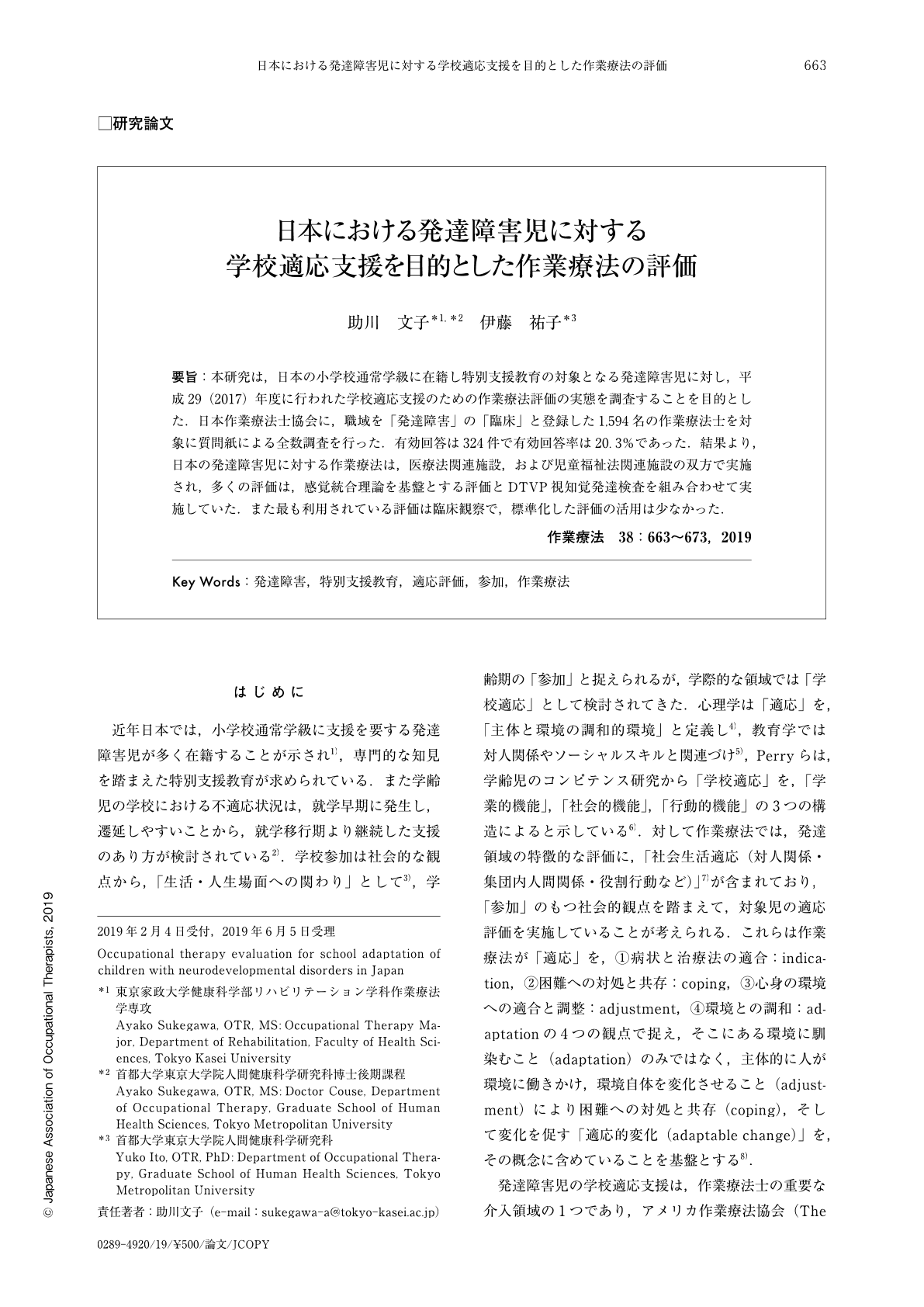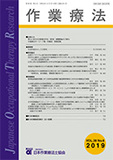Japanese
English
- 販売していません
- Abstract 文献概要
- 1ページ目 Look Inside
- 参考文献 Reference
- サイト内被引用 Cited by
要旨:本研究は,日本の小学校通常学級に在籍し特別支援教育の対象となる発達障害児に対し,平成29(2017)年度に行われた学校適応支援のための作業療法評価の実態を調査することを目的とした.日本作業療法士協会に,職域を「発達障害」の「臨床」と登録した1,594名の作業療法士を対象に質問紙による全数調査を行った.有効回答は324件で有効回答率は20.3%であった.結果より,日本の発達障害児に対する作業療法は,医療法関連施設,および児童福祉法関連施設の双方で実施され,多くの評価は,感覚統合理論を基盤とする評価とDTVP視知覚発達検査を組み合わせて実施していた.また最も利用されている評価は臨床観察で,標準化した評価の活用は少なかった.
This study aimed to investigate the actual conditions of occupational therapy evaluation for school adaptation of children with neurodevelopmental disorders in Japan. The study took place from April 1st, 2017 to March 31st, 2018, and selected children were enrolled in a regular elementary school class and received special needs support. An original questionnaire was mailed to 1,594 Japanese occupational therapists specializing in “Clinical” and “Neurodevelopmental Disorders” who were registered with the Japanese Association of Occupational Therapists. There were 324 respondents (response rate, 20.3%). Occupational therapy was performed for children with neurodevelopmental disorders in both medical institutions and day-care facilities including medical and welfare types. Preschool- and school-age children were frequently evaluated based on sensory integration theory; these occupational therapy evaluations involved a developmental test of visual perception. Furthermore, such evaluations were mostly used for clinical observation. The use of standardized assessment was limited.

Copyright © 2019, Japanese Association of Occupational Therapists. All rights reserved.


